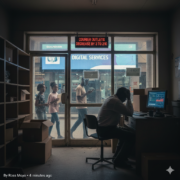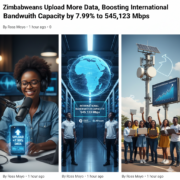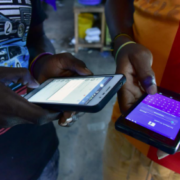Social media presents us with an easy and fast method of sending and receiving information, but not all the information shared and received is factual, some are lies that leads us to act in ways that are detrimental to ourselves. In this day and age, information isn’t always judged by its accuracy, but sometimes by how fast it can be accessed. Given the ease associated with getting information on social media, from people who may be less than trustworthy, social media can be dangerous to us.
A new study conducted in America found that during a disaster, people who get their information mostly from unofficial channels like social media accounts are most exposed to conflicting information and experience the most psychological distress. The study was led by Nickolas M. Jones who spoke to Mashable about the study and its implications.
“If random people you don’t know are tweeting information that seems really scary, that’s anxiety-provoking.” Jones said.
But sometimes, even social media postings can start a disaster. We have seen this happening in Zimbabwe when the news about imminent food shortages and price increases that mimic the devastating 2008 era, posted and shared on various social media sites sent a lot of people to hoard groceries from shops and created shortages and price hikes as demand exceeded supply pushing the price up.
The study noted the importance of emotions and perception in dealing with information as people are emotional beings that cannot separate their emotions from what they hear and see and that includes online postings.
“You are going to feel something no matter what because you are a human being. Where we go from there to mitigate anxiety is what really matters.” says Jones.
But we cannot put all the blame on social media’s tendency to exaggerate on issues and make them worse, people tend to do that, the failure of media houses and proper authorities to keep the public adequately updated makes then hunt even more for any source that mentions what they are searching for, whether it is reliable or not.
Jones also noted that rumours tend to fly more when there is less information being dished through proper channels. “In an information vacuum, rumours fly on social media.” he said, noting how social media has turned out to be the most focal point for news for people online.
People expect their information fast and with frequent updates and that has necessitated the spread of fake news and other misleading information on social media as anyone can just start saying anything that ends up getting traction, and if they have quite a following, it can go viral easily.
Whatever your view of social media is, it may be dangerous as it has a tendency of creating and exaggerating on situations and making them seem more than what they really are. Given that our actions will be based on that, it makes social media more dangerous to us.











Comments